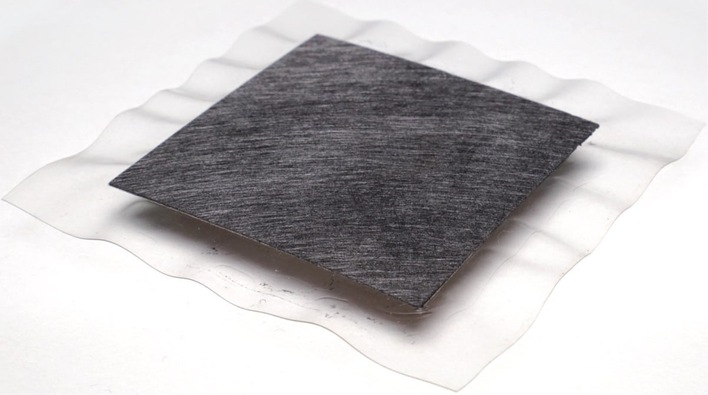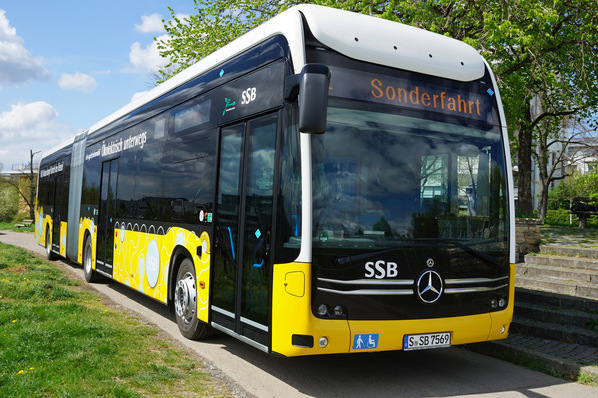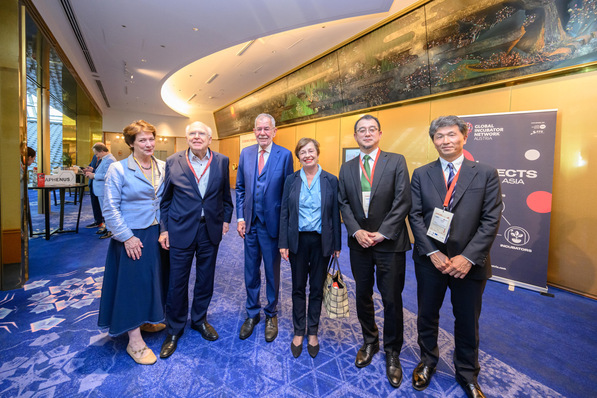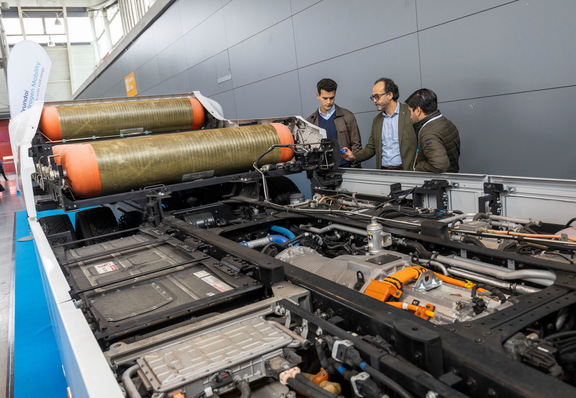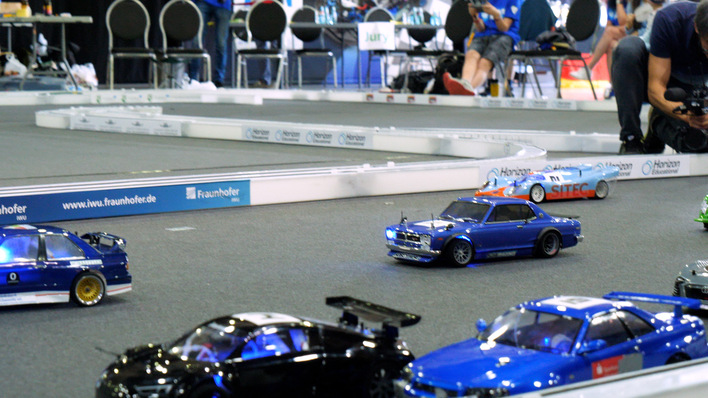On August 18, 2025, the foundation stone was laid at Technische Universität Braunschweig for the “Center for Circular Production of Next Batteries and Fuel Cells” (CPC). Beginning at the end of 2027, around 150 scientists will work in the new research building on processes for circular production and recycling of batteries and fuel cells. The CPC is being built on a 3,700-square-meter site at the Braunschweig Research Airport. Construction costs amount to approximately 73 million euros. Of this, the federal government and the Federal State of Lower Saxony are jointly contributing 65 million euros. The remaining eight million euros are being provided by TU Braunschweig.
Research on closed material cycles
The aim of the CPC is to integrate recycling and resynthesis processes already during product development. The focus is on solid-state batteries, membrane-based flow batteries, fuel cells, and metal-oxygen systems. A particular emphasis is placed on the recovery of critical raw materials and their processing into high-purity active materials. The research teams come from the fields of process engineering, recycling, manufacturing technology, chemistry, physics, and logistics. They are to work together on solutions for closed material cycles in order to reduce resource consumption and increase the sustainability of energy storage systems.
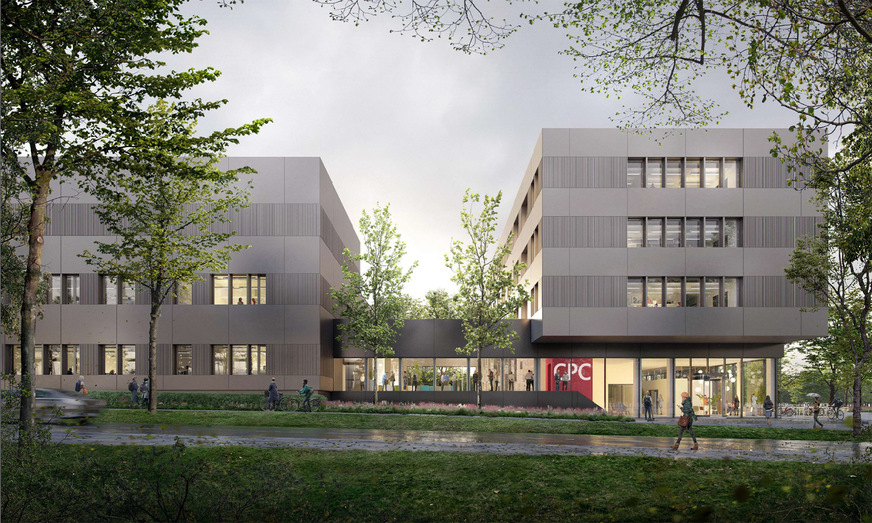
Nickl Architekten Deutschland GmbH
Integration into the existing research landscape
The CPC is part of the regional alliance “Braunschweig LabFactories for Batteries and more” (BLB+). In addition to TU Braunschweig, this includes TU Clausthal, the Physikalisch-Technische Bundesanstalt (PTB), Leibniz University Hannover, and the Fraunhofer Center for Energy Storage and Systems (ZESS). The proximity to existing facilities such as the Battery LabFactory Braunschweig (BLB), Fraunhofer ZESS, and research centers for automotive and aerospace engineering is intended to create synergies. The goal is to combine the development of new electrodes, membranes, and cell concepts with digital simulation tools and in-situ diagnostic methods.
“The CPC research building will become the physical embodiment of a ‘circular research factory’,” says Arno Kwade, designated spokesperson of the CPC and head of the Battery LabFactory Braunschweig. “We are developing experimental and digital methods to investigate function-preserving material cycles as well as energy-efficient recycling and production processes.” Falko Mohrs, Minister for Science and Culture of the Federal State of Lower Saxony, emphasizes: “For the competitiveness of our automotive industry, but also for a sustainable energy supply, research into durable, recyclable batteries and efficient fuel cell technologies is essential.”
In the long term, the CPC is intended to contribute to the development of a competitive battery and fuel cell production in Germany.




